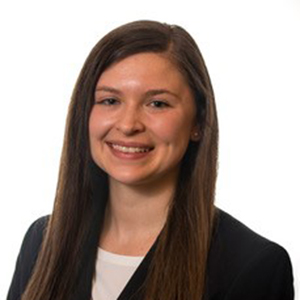Advice From Melinda Davis, MD, FACC, on Starting Your Own Cardio-Obstetrics Program
Many people venturing into cardiology are interested in niche areas such as cardio-obstetrics, cardio-oncology and vascular medicine. However, well-established cardiovascular programs and hospital systems don't always have an established clinic with a focus on these smaller subspecialty areas. If these niches are of particular interest to you but not available at your current institution or practice, you may wonder how to create a program of your own. Today, we will focus on some of the important aspects to consider when thinking of starting your own subspecialty program after talking with cardio-obstetrics expert, Melinda Davis, MD, FACC, who started her own cardio-obstetrics program at the University of Michigan.
One of the biggest pieces of advice Davis discusses for starting a new program is having an interest and identifying a need. For the cardio-obstetrics patient population, it is not uncommon for both sides of the caregiver team to feel uncomfortable taking care of the whole patient. Having an expert in both cardiology and obstetrics who is familiar with caring for such a population is important. Furthermore, knowing the key members that play a crucial role in the provider team is essential. This often includes having individuals from not only cardiology and obstetrics, but also fields such as adult congenital, anesthesiology, maternal fetal medicine, pharmacy and nursing. Once a team is established, Davis also mentions having monthly multidisciplinary meetings to discuss complicated patients to ensure that everyone is on the same page about their care.
In the early stages of starting your own program, it is important to be available and accessible. "I let the obstetricians know that whenever they needed a cardiology consultation, I would overbook the patient during my lunch break in clinic," Davis says. While she initially started seeing patients on her own time, this eventually allowed her to establish a full patient panel and grow her practice, helping her build traction to open a dedicated cardio-obstetrics practice.
To spread the word to others about the clinic, she presented the topic at Grand Rounds, involved junior trainees, spoke with nursing midwives, and reached out to other cardiologists and cardiology leadership for support. This included electrophysiologists, advanced heart failure specialists and aortopathy specialists. This not only highlights the complexity of the patient population, but again demonstrates the importance of having a multidisciplinary team that will work together. Davis also mentions that it is important to "respect partnerships that have already been established and provide additive, but not duplicative care." Often, beginning with these measures spreads awareness through word of mouth alone.
Another important thing to consider is where these patients will be seen. As mentioned, Davis initially saw patients as add-ons to her own clinic during her lunch period. However, as her practice grew, she was able to centralize her care, spending time in the obstetrics office and seeing patients in concert with obstetrics as dedicated clinic time. Having both the cardiology and obstetrics clinics co-located, patients have better access to care and reduced burden on driving, appointment times, time away from work or other responsibilities. While this may work for large hospitals that have an obstetrics practice on site, this may be more difficult in smaller, private practice groups. Therefore, the actual building and work environment must be considered.
Ultimately, Davis' biggest piece of advice is: "follow your passion!" More and more women need to be seen by specialists with knowledge of cardio-obstetrics and programs will often naturally grow once that need is identified. While this may look different from institution to institution, she encourages those interested to "reach out to those who have started other programs at your institution, attend national and regional cardio-obstetrics meetings and network with others who are doing this across the country."
And don't forget, as Davis says, "setbacks in life are common, but can be really helpful." Continuing to stay dedicated to your passion and seeking out training or other leadership events to assist you through the process are essential.
The ACC holds an annual subspecialty networking event for FITs and early career members that includes experts from fields like cardio-obstetrics to further discuss such topics.
For more information, please visit the Reproductive Health & Cardio-Obstetrics Member Section Activities and Resources page and the Cardio-Obstetrics course available in ACC Anywhere.

This article was written by Heather Wheat, MD, a FIT at the University of Michigan.
This content was developed independently from the content developed for ACC.org. This content was not reviewed by the American College of Cardiology (ACC) for medical accuracy and the content is provided on an "as is" basis. Inclusion on ACC.org does not constitute a guarantee or endorsement by the ACC and ACC makes no warranty that the content is accurate, complete or error-free. The content is not a substitute for personalized medical advice and is not intended to be used as the sole basis for making individualized medical or health-related decisions. Statements or opinions expressed in this content reflect the views of the authors and do not reflect the official policy of ACC.

